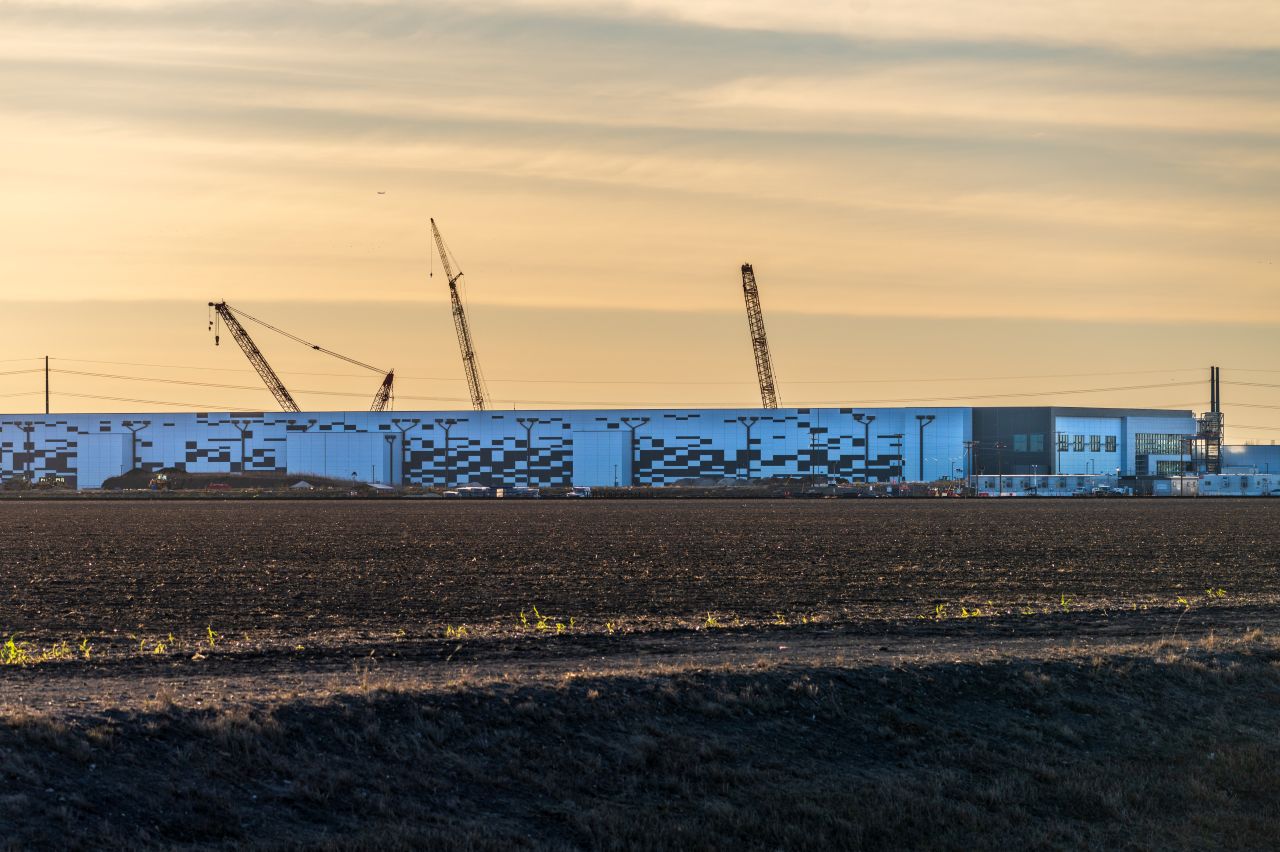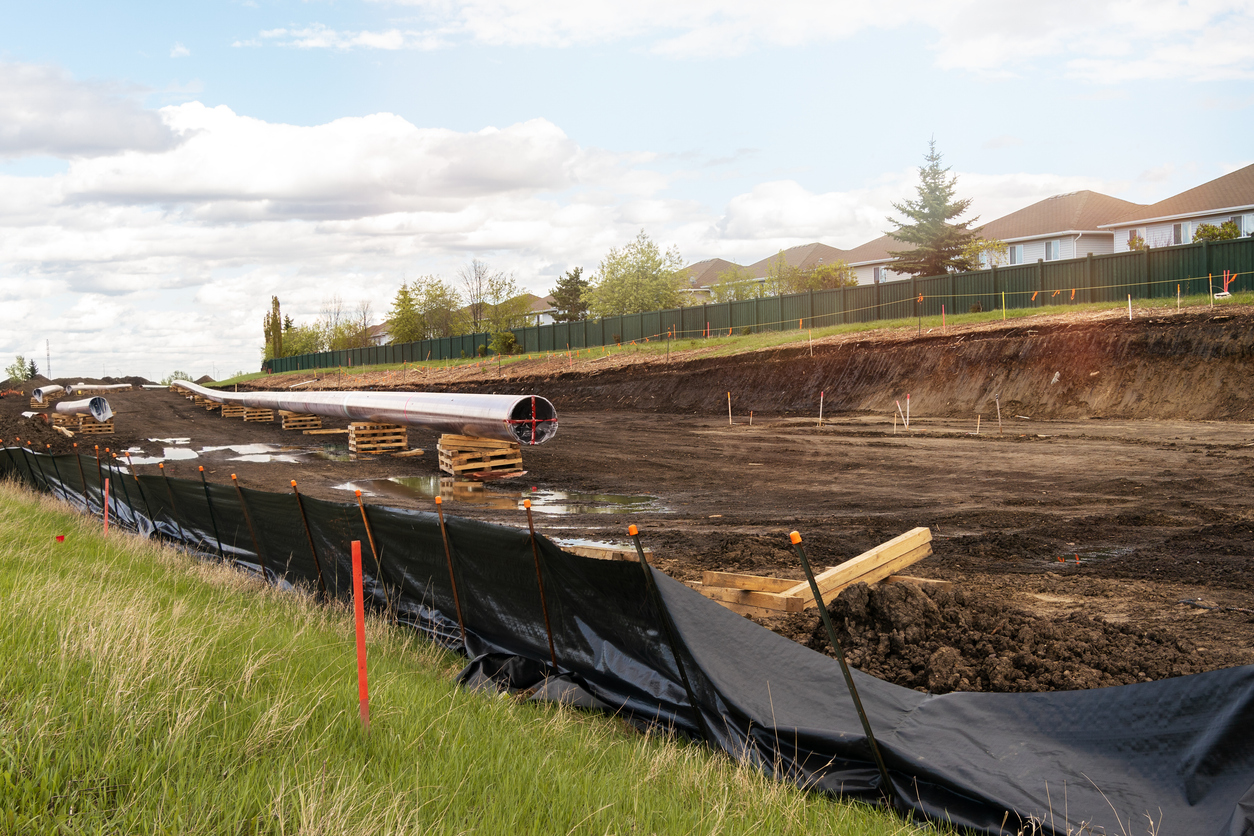Pipeline supplying new PA plastics plant charged with criminal cover up of spills

The Shell Polymers Monaca petrochemical plant has been a source of community concern and consternation to residents of Beaver County, in Western Pennsylvania, since it started up in 2022. The Pennsylvania Department of Environmental Protection identified chronic pollution violations at the plant. Now, state officials have alleged that during construction of a key pipeline supplying natural gas liquid to the plant, contractors skirted pollution regulations. All this adds to residents’ wariness over the monster plastics plant in their backyard.
On Friday, April 19, Pennsylvania's Attorney General charged Shell Pipeline with 13 criminal charges for violating Pennsylvania’s Clean Streams Law during construction of the 45-mile Falcon Pipeline in western Pennsylvania. The pipeline, owned and operated by Shell, transports natural gas liquid in the form of ethane from drilling sites in Ohio, West Virginia, and Pennsylvania to the Shell Polymers Monaca petrochemical plant, where the ethane is processed into plastic.
The pipeline charges stem from testimony by whistleblowers who worked on the Falcon Pipeline during its construction from 2019 to 2020. The ensuing investigation revealed that Shell allegedly failed to notify the Department of Environmental Protection (DEP) about multiple problems, including instances when drilling mud or fluid was lost underground and, in some instances, came to the surface in unplanned locations where it could contaminate waterbodies.
“Pennsylvania’s environmental laws are in place to keep families and communities safe from harm caused by major construction projects, such as pipelines,” said Attorney General Michelle Henry in a statement. “This company chose to ignore those laws and kept quiet issues that should have been disclosed to prevent potential impacts.”
According to the complaint, Shell contractors did not report all industrial waste spills to the state DEP because they wanted to avoid mandatory shutdown measures included in the pipeline’s permit.
A Shell employee named Erica Lillian Kasundra, a regional project manager, told investigators in the complaint that pipeline inspectors’ reports of volumes of drilling mud spilled were different than those reported to the DEP. She told investigators she thought the pipeline contractor was submitting losses to the DEP “just under what would require a field visit from DEP.”
According to the complaint, Shell also allegedly failed to install real-time data logging devices on its drilling equipment, in violation of its permit.
Heather Hulton VanTassel, executive director of Three Rivers Waterkeeper based in Western Pennsylvania, said she is not surprised by the charges.
“We are grateful for the whistleblowers and those that do not accept the status quo of profit over people and the environment,” she said. “Underreporting or lack of reporting spills does not allow necessary communications to those impacted nor allow for proper cleanup.”
In response to the charges, Shell spokeswoman Virginia Q. Sanchez told the Allegheny Front the company is “reviewing the complaint and has been in contact” with the attorney general’s office.
“From the beginning of the construction of the Falcon Pipeline project, (Shell Pipeline) has cooperated with all relevant local, state, and federal agencies and the affected communities to ensure its pipeline was constructed in a safe and environmentally responsible manner,” Sanchez said.
This is not the first time that Shell Pipeline has run into legal troubles with its handling of the construction of the Falcon Pipeline. In October 2022, the PA DEP fined the company $670,000 for repeatedly violating its permits while constructing the pipeline by spilling drilling fluids along the pipeline route.
“Accountability is essential especially for communities directly impacted by this pipeline like mine in Washington County,” said Cathy Lodge, resident of Robinson Township, Washington County. “My neighbors and I rely on groundwater for our homes and farms. We need to know exactly where these spills occurred and be properly informed of any risks. To date no such notifications have occurred.”
The Falcon Pipeline feeds ethane, a “natural gas liquid” (a petroleum product that is extracted from natural gas) to the Monaca facility’s ethane cracker, which uses the ethane to produce polyethylene. The plant has the capacity to produce 1.6 million metric tons of polyethylene pellets per year to be used in single-use plastics products such as soda bottles and food packaging.

Since the Shell Polymers Monaca started operations in 2022, the plant has frequently violated its pollution limits. In May 2023, the state government found that the Monaca plant had exceeded total emission limits for carbon monoxide, volatile organic compounds (VOCs), nitrogen oxides (NOx), and hazardous air pollutants, among other violations. Shell agreed to pay nearly $10 million in response to the findings, about half of which are penalties and the other half paying for environmental projects to benefit the local communities.
The Pennsylvania Department of Environmental Protection’s website lists 15 notices of air pollution violations issued to the Shell Monaca plant since Nov. 15, 2022. The latest of these being a violation notice on April 5, 2024, for exceeding legal limits for particulate matter emissions.
Shannon Smith, the executive director for FracTracker, said the state DEP needs to move away from a pay-to-pollute model. “It’s not enough for Shell to provide community development funds as part of an environmental enforcement settlement,” Smith said.
Smith said records show that Shell’s safety record is one of the worst in the nation. “Their continued pollution violations reflect just how much they consider their neighbors,” Smith said. “Many harmful spills never result in criminal charges, so it is fair to wonder whether these [Falcon Pipeline charges] are due, in part, to a general lack of cooperation from Shell.”
The Monaca facility received over $1.6 billion in state tax credits, the largest petrochemical subsidy in Pennsylvania state history.
Smith said contrary to Shell’s promises of economic prosperity flowing from those public subsidies, Beaver County has seen a drop in gross domestic product, population, and employment rates since the plant was announced in 2012.
“Residents will continue to pay the price in the form of medical bills in the coming decades,” she said. “Coincidentally or not, a brand new cancer clinic opened just across from the Shell cracker plant.”
Lead photo: The Falcon Pipeline leading to Shell's petrochemical complex in Potter Township, PA, on the Ohio River just a few miles from the Ohio state line (Associated Press, Pittsburgh Post-Gazette).















